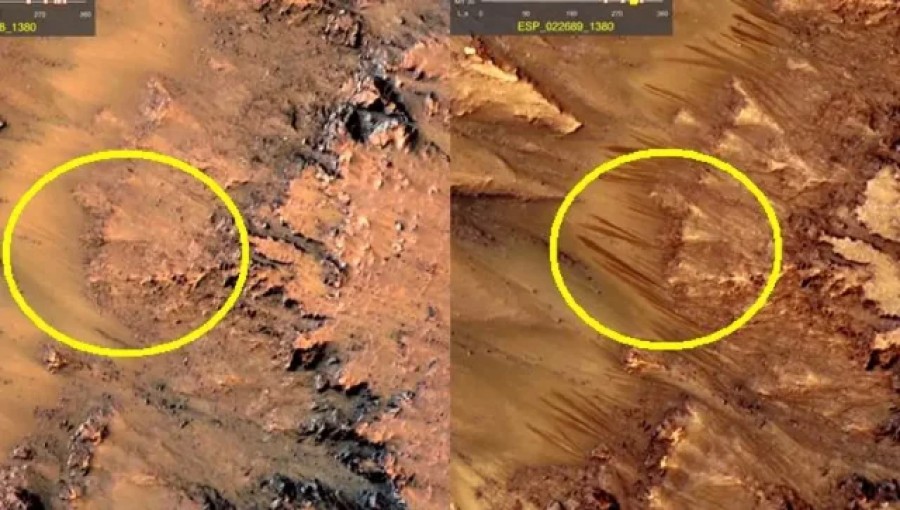Washington, August 14 –NASA has confirmed the existence of a significant reservoir of liquid water deep beneath the surface of Mars, marking a major breakthrough in the ongoing search for signs of life on the Red Planet. The discovery was announced in a report published by NASA on Monday, based on data gathered by the Mars InSight Lander, which has been conducting seismic studies on Mars since 2018.
The research, reported by Reuters, reveals that the liquid water is located between 11.5 to 20 kilometers below Mars' surface, far deeper than previously anticipated. This finding challenges earlier assumptions and suggests that Mars may harbor more liquid water than previously thought, potentially reshaping our understanding of the planet’s history and its capacity to support life.
Vashan Wright, a geophysicist at the Scripps Institution of Oceanography and a co-author of the study, explained that Mars likely had lakes, rivers, and oceans on its surface about three billion years ago. "If this research is accurate, it means the conditions necessary for life as we know it could have existed on Mars," Wright stated.
The InSight Lander, which has been analyzing seismic data on Mars for over four years, provided the crucial information that led to this discovery. The lander has been examining how the planet’s surface reacts during "marsquakes," enabling scientists to infer the composition of the materials beneath the surface.
The research team, which includes Matthias Morzfeld from Scripps and Michael Manga from the University of California, Berkeley, believes that water may have penetrated from the Martian surface and accumulated in these deep underground reservoirs, similar to processes observed on Earth. "We know that our Earth is rich in water and energy sources, sustaining life even deep underground," Wright noted. "It’s possible that Mars underwent a similar process, particularly when its surface was warmer and more hospitable."
The findings, published in the Proceedings of the National Academy of Sciences, provide new momentum in the quest to understand Mars' geological history and the potential for past or present life on the planet. As scientists continue to analyze the data, this discovery could lead to new missions focused on exploring these deep reservoirs, bringing humanity closer to answering the age-old question of whether we are alone in the universe.































Comment: